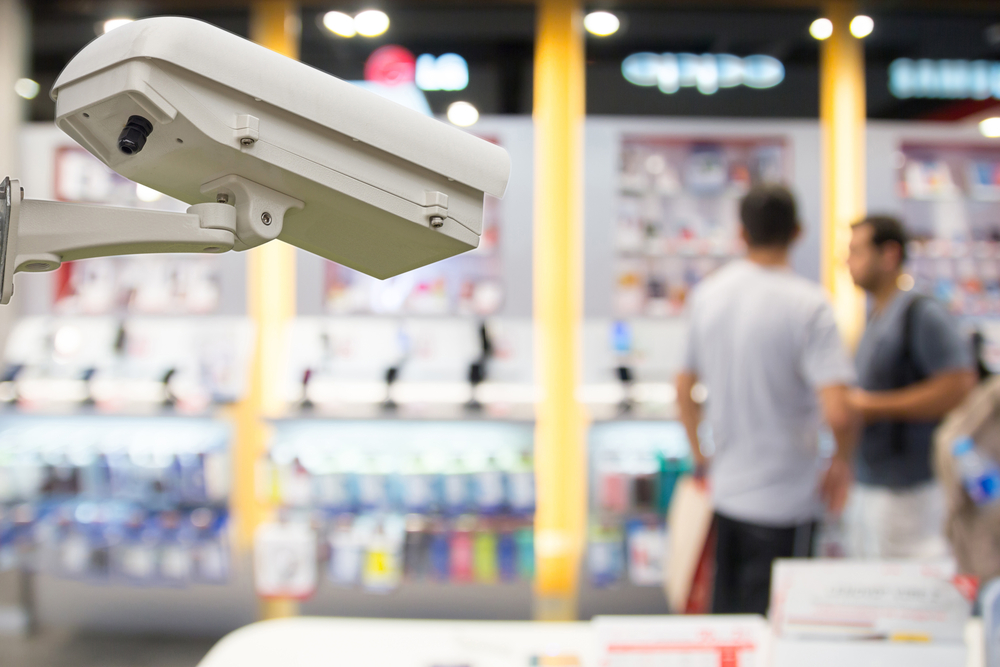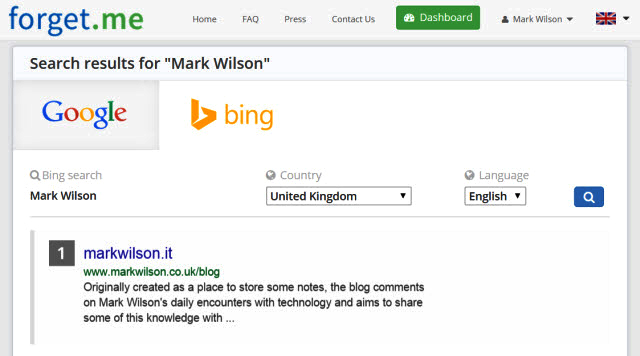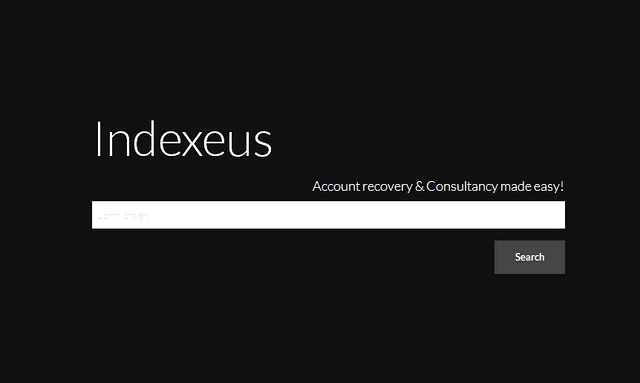
Dating site OkCupid freely admits lying to its customers
There was widespread condemnation of Facebook when it was revealed that the social network had been manipulating users' newsfeeds as part of a social experiment. Official complaints may have been made but it doesn’t seem to have served as a lesson for other websites. Now it transpires that OkCupid -- the dating website whose slogan is "We use math to get you dates" -- has been fiddling the figures in a series of experiments on its users. The weird thing is, the site is openly bragging about it.
In a blog post unashamedly titled "We Experiment On Human Beings!", founder Christian Rudder writes that "OkCupid doesn’t really know what it’s doing". Seems like something of an odd admission. The blog post details three experiments the dating site conducted on its subscribers. There must have been more because the post is prefaced with the words "Here are a few of the more interesting experiments OkCupid has run". Does "interesting" just mean "less controversial"? Who knows?

Tech startups working to protect your privacy
Addressing the Hackers on Planet Earth (HOPE) conference over the weekend of 18 July, Edward Snowden entreated hackers, engineers and activists to fight surveillance by building a new generation of privacy tools for everyone to use. In fact, privacy startups are already hard at work building tools to help web users protect their privacy in areas such as analytics, encryption and search.
However, there is still much work to do to put these tools into the hands of the ordinary web user.

Russia offers a $112,000 bounty to anyone who can crack Tor
Russia's government has issued a 4 million rubles (about $112,000) bounty to anyone who cracks the Tor anonymity network's encryption protocols.
Tor, which began as a secret project from the US Naval Research Laboratory, works by piling up layers of encryption over data, nested like the layers of an onion, which gave the network its original name, The Onion Router (TOR).

The tracks of my bargains – sacrificing privacy for a good deal
The increased popularity of smartphones means that, unless we specifically opt not to, most of us leave a record of our location wherever we go.
This information is of course valuable to marketers and a new study by customer engagement specialists PunchTab reveals that consumers are concerned about how location data is used.

Forget.me now handles 'right to be forgotten' requests for Bing as well as Google
Back in May, the EU Court of Justice ruled that people have a "right to be forgotten" from search results. Google fairly quickly set up an online form to allow complainants to put forward their case for censoring their appearance in results. It didn’t take long for Microsoft to follow suit, and Bing users were soon afforded the same option.
Forget.me was one service that offered to take care of Google removal requests for people, and at the time CEO Bertrand Girin promised that "if Bing and Yahoo get their Right to be Forgotten forms in order, we’ll be able to provide you with the possibility of submitting your URL to all three search engines at the same time." For Microsoft, that day has come.

Search engine Indexeus can tell you if your passwords are available to hackers online
While the rest of the world is debating the rights and wrongs of the "right to be forgotten" in the European Union, one Portuguese entrepreneur with remarkably few scruples has been making a fast buck out of the idea. Indexeus, designed by 23-year-old Jason Relinquo of Portugal, is a search engine that boasts a searchable database of "over 200 million entries available to our customers".
The site allows anyone to search through millions of records from some of the larger data breaches of late -- including the recent massive breaches at Adobe and Yahoo! -- listing huge amounts of information such as email addresses, usernames, passwords, Internet address, physical addresses, birthdays and other information that may be associated with those accounts.

Do Not Track is bolstered by EFF's Privacy Badger extension
Online security and privacy are hotter topics than ever. Just this weekend, Edward Snowden made an appearance at the Hope X 2014 hacker event, and called for those in attendance to help make encryption tools easier to use. Another fierce advocate of online privacy is the EFF (Electronic Frontier Foundation), and today the group released a beta version of Privacy Badger, a beautifully named extension for Chrome and Firefox designed to stop a number of tracking techniques used online. The idea of tracking cookies is something that will be familiar to most, but tracking takes many forms, including advertising and social media. Privacy Badger aims to block this tracking.
Peter Eckersley, EFF Technology Projects Director, said: "Widgets that say 'Like this page on Facebook' or 'Tweet this' often allow those companies to see what webpages you are visiting, even if you never click the widget's button. The Privacy Badger alpha would detect that, and block those widgets outright. But now Privacy Badger's beta version has gotten smarter: it can block the tracking while still giving you the option to see and click on those buttons if you so choose".

Wilson's Weekend Whine: Snowden's call for online encryption is sad but necessary
It was quite a coup for HOPE (Hackers On Planet Earth). At the 2014 hacker event, Hope X, in New York City this weekend, Edward Snowden delivered a speech to those in attendance, advocating the use of encryption online. The former NSA analyst was not at the event himself -- he's still holed up in Moscow -- but he called on those present to help to protect privacy online. Speaking via a video link Snowden said: "You in this room, right now have both the means and the capability to improve the future by encoding our rights into programs and protocols by which we rely every day".
It was a great piece of work keeping the presentation a secret. There were, of course, fears that Snowden's appearance would somehow be thwarted: "We had to keep this bombshell quiet til the last minute since some of the most powerful people in the world would prefer that it never take place." There were certainly risks involved, but it was a risk worth taking. "[Snowden's] revelations of the massive NSA surveillance programs confirmed the suspicions of many and shocked those who haven’t been paying attention".

Snowden: Facebook is allowing the government to see your messages
In a lengthy interview with the Guardian, NSA whistle blower Edward Snowden spoke with editor Alan Rusbridger about his extraordinary rise to infamy. Currently in exile in Russia, he talked about how he disseminated documents about the activities of the NSA to numerous countries: "Once you start splitting them over jurisdictions and things like that it becomes much more difficult to subvert their intentions. Nobody could stop it". He remains defiant. He may be an outlaw but "it’s been vindicating to see the reaction from lawmakers, judges, public bodies around the world, civil liberties activists who have said it’s true that we have a right to at least know the broad outlines of what our government’s doing in our name and what it’s doing against us".
He explains how during his time working as an NSA analyst, he learned about previous surveillance programs run under George W Bush. Programs that were deemed unconstitutional and, having been closed, forced the US government to assume new executive powers that were then used "against the citizenry of its own country". For Snowden the power of the state is worrying:

Dashlane revamps user interface, unveils new shared features
Dashlane, Inc has released Dashlane 3.0 for Windows and Mac, a major new build of its secure password management tool. The new release is joined by Dashlane 2.7 for iOS, which has been updated to work with version 3.
Version 3 sports a completely redesigned user interface, adds a number of new tools, including a Sharing Center, Emergency Contacts section and a simpler way of viewing password histories.

Bing offers complainers a right to be forgotten from search results
If you live in Europe and don't like the fact that Binging yourself throws up results you'd rather didn’t appear, Microsoft has created a form you can use to request removal of these links from searches. (Yeah, ok…Bing doesn't really work as a verb in the same way as Google. Lesson learned.) Not all that long ago, Google was forced to consider censoring search results that people considered to be out of date, incorrect or irrelevant -- it's a ruling that has been dubbed the right to be forgotten. A form was set up to make it easier for people with complaints to get in touch, and now Microsoft has followed suit and created a Request to Block Bing Search Results In Europe form.
Filling in the form is absolutely no guarantee that a search result will be removed -- and it is important to remember that this is only about removing links from search results, not removing actual content. Or, as Microsoft puts it in the form:

Google does a 180 and allows fake names on Google+
Google is no stranger to upsetting people, and it certainly managed to do this back when Google+ launched three years ago. The social network that finds itself the butt of many jokes has long been criticized for forcing users to reveal their real names. But this policy is no more.
As well as reversing the real name requirement, Google has also apologized for the restrictions that have been in place over the past three years. The change of heart was announced, of course, in a Google+ post, and has been welcomed by the + community.

Hidden From Google shows the 'right to be forgotten' is pointless
It's a little while since a European Court of Justice ruling forced Google to start removing search links to certain articles. Dubbed the "right to be forgotten", the ruling led Google to create an online form making it easier for people to get in touch about search results relating to them thought to be "inadequate, irrelevant or no longer relevant". But just like those requests from celebrities to stop publishing compromising images online, it seems like asking for search links to be censored serves only to highlight the existence of the web pages they correspond to.
The court's decision that people should be able to request that information about them be removed from Google searches came after Spaniard Mr Costeja González took exception to links to stories about a series of old debts he had. There are now few people who follow news about Google who are not aware that Mr González has a less than perfect credit history. It's not clear whether he regards the ruling as a personal victory, but the appearance of Hidden From Google is sure to ruffle the feathers of many who have submitted similar removal requests to the search giant.

Miniature Hero, Underpass, Badger, Rolling Thunder and Angry Pirate -- just some of GCHQ's secret spy programs
The hacking and spying techniques of the UK's Government Communications headquarters (GCHQ) have been exposed in the latest leak by Edward Snowden. The wide-ranging techniques include invasive methods for online surveillance, as well as some of the very techniques that the US and UK have harshly prosecuted young online activists for employing, including distributed denial of service (DDoS) attacks and "call bombing".
The document is set out in a massive Wikipedia-style archive used by GCHQ to internally discuss its surveillance and online deception activities.

1 million users affected by CNET.com hack
News and review website CNET has been targeted by a team of Russian hackers called W0rm. CNET's servers were hit over the weekend, but details have only just been released.
Although CNET has not given a concrete confirmation of exactly what happened, the site explains that a representative of W0rm claims to have stolen a database containing the usernames and passwords of over a million users. It seems a security hole in the Symfony PHP framework was exploited, and it is not yet clear what the fallout could be.